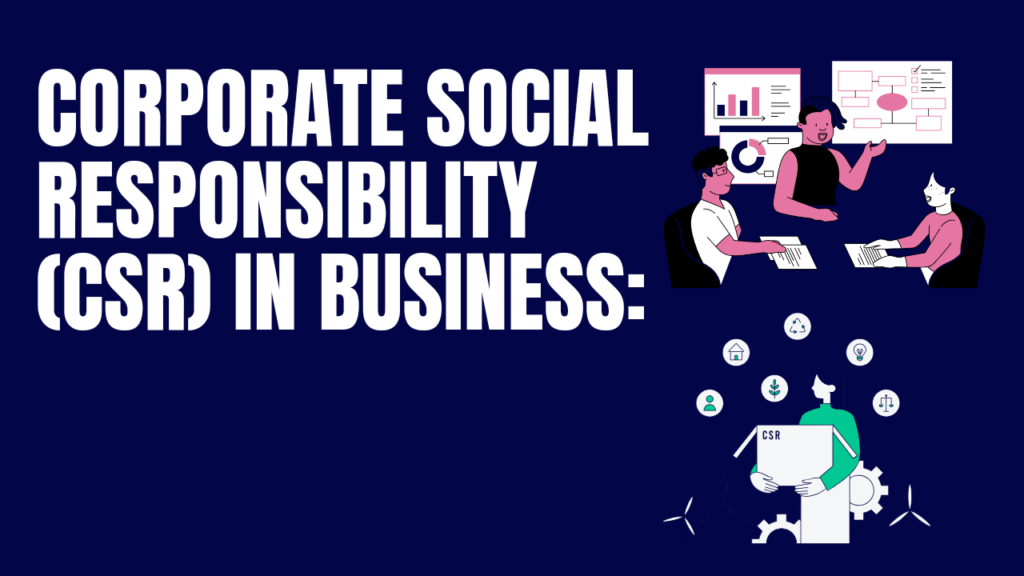SUSTAINABLE BUSINESS PRACTICES

Sustainable business practices refer to the integration of environmentally friendly, socially responsible, and economically viable strategies in a company’s operations. Sustainable businesses focus on reducing their ecological footprint, promoting social equity, and ensuring long-term profitability through responsible practices such as recycling, energy efficiency, ethical sourcing, and community engagement. Implementing sustainable practices not only benefits the environment but also enhances a company’s reputation and can lead to cost savings in the long run.
Sustainable business practices refer to strategies and activities that aim to meet the needs of the present without compromising the ability of future generations to meet their own needs. This approach involves considering economic, social, and environmental factors in business decision-making processes. Sustainable businesses focus on minimizing their environmental impact, promoting social responsibility, and ensuring long-term economic viability. Common practices include energy efficiency, waste reduction, ethical sourcing, and community engagement. Adopting sustainable practices is crucial for addressing climate change and promoting a more environmentally conscious and socially responsible global economy.
Sustainable business practices refer to the integration of environmentally friendly, socially responsible, and economically viable strategies in a company’s operations. Sustainable businesses focus on reducing their ecological footprint, promoting social equity, and ensuring long-term profitability through responsible practices such as recycling, energy efficiency, ethical sourcing, and community engagement. Implementing sustainable practices not only benefits the environment but also enhances a company’s reputation and can lead to cost savings in the long run.
Sustainable business practices refer to strategies that aim to meet the needs of the present without compromising the ability of future generations to meet their own needs. This approach involves considering the social, environmental, and economic impacts of business operations. Sustainable practices can include reducing waste, conserving energy, using eco-friendly materials, supporting local communities, and promoting fair labor practices. Embracing sustainable business practices is crucial for addressing environmental challenges and ensuring long-term business viability.
Sustainable business practices refer to strategies that aim to meet the needs of the present without compromising the ability of future generations to meet their own needs. These practices focus on minimizing negative environmental impacts, promoting social responsibility, and ensuring long-term economic viability. Sustainable businesses often implement eco-friendly initiatives, ethical sourcing, energy efficiency, waste reduction, and social welfare programs to create a positive impact on the environment and society while maintaining profitability.
Sustainable business practices refer to strategies and activities that aim to meet the needs of the present without compromising the ability of future generations to meet their own needs. These practices focus on environmental, social, and economic considerations, ensuring businesses operate responsibly and ethically. Sustainable business practices can include reducing carbon emissions, conserving natural resources, promoting fair labor practices, supporting local communities, and adopting eco-friendly technologies. By embracing sustainability, businesses contribute to a healthier planet and create long-term value for both their stakeholders and society.
Sustainable business practices refer to strategies that aim to meet the needs of the present without compromising the ability of future generations to meet their own needs. This approach involves considering the social, environmental, and economic impacts of business operations. Sustainable practices can include reducing waste, conserving energy, using eco-friendly materials, supporting local communities, and promoting fair labor practices. Embracing sustainable business practices is crucial for addressing environmental challenges and ensuring long-term business viability.
Sustainable business practices refer to strategies that aim to meet the needs of the present without compromising the ability of future generations to meet their own needs. These practices focus on minimizing negative environmental impacts, promoting social responsibility, and ensuring long-term economic viability. Sustainable businesses often implement eco-friendly initiatives, ethical sourcing, energy efficiency, waste reduction, and social welfare programs to create a positive impact on the environment and society while maintaining profitability.
Sustainable business practices refer to strategies that aim to meet the needs of the present without compromising the ability of future generations to meet their own needs. This approach involves considering the environmental, social, and economic impacts of business operations. Examples include reducing carbon emissions, conserving resources, promoting fair labor practices, and investing in renewable energy. Sustainable practices not only benefit the environment but also enhance a company’s reputation, reduce costs, and foster long-term business success.
Sustainable business practices refer to strategies that aim to meet the needs of the present without compromising the ability of future generations to meet their own needs. This approach involves integrating environmental, social, and economic considerations into business decisions. Examples include reducing carbon emissions, conserving resources, promoting fair labor practices, and supporting local communities. Implementing sustainable practices can enhance a company’s reputation, reduce costs, and contribute to long-term environmental and social well-being.
Sustainable business practices refer to strategies that prioritize environmental, social, and economic considerations to meet the needs of the present without compromising the ability of future generations to meet their own needs. This approach involves integrating environmentally friendly and socially responsible initiatives into business operations, supply chains, and decision-making processes. Sustainable businesses aim to reduce their environmental impact, conserve resources, support local communities, and promote fair labor practices. Adopting sustainable practices not only benefits the environment but also enhances reputation, reduces costs, and fosters long-term profitability for businesses.






